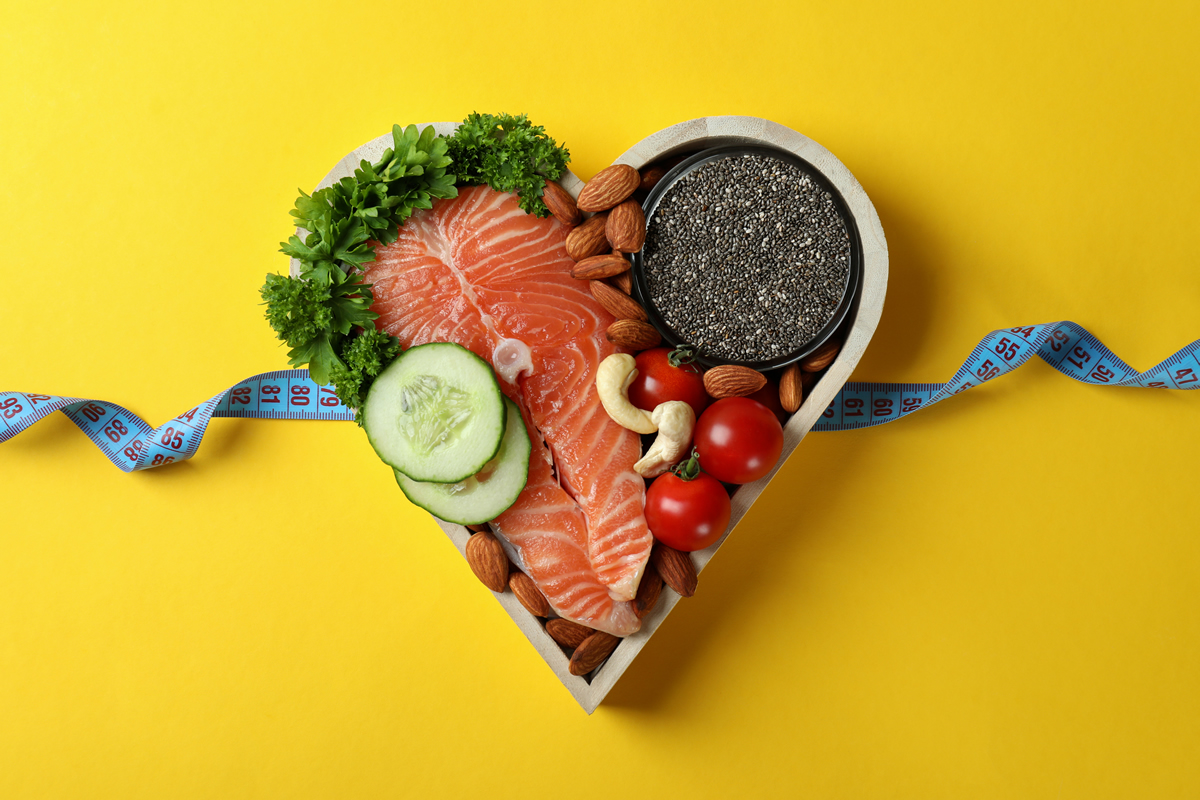In Mexico, more than 150 thousand people die annually from heart problems, especially from acute myocardial infarction (UNAM). More than 85% of the Mexican population frequently consumes sweetened beverages; there are also high percentages of consumption of non-recommended foods such as snacks, sweets and desserts; and more than 50% of the incidence of consumption of these products occurs in children. (ENSANUT 2020)
Given this scenario, experts from Massachusetts General Hospital share a list of healthy shopping for the heart.
1. Oils for cooking and baking
For a healthy heart, use liquid fat (oils) instead of solid fat (butter or margarine), whenever possible when cooking or baking. Oils have less saturated (unhealthy) fat than butter or margarine. Here are some examples of healthy oils: olive oil, canola oil, corn oil, safflower oil, peanut oil, or walnut oil.
2. Margarines and spreads
Margarine that does not contain trans fat and has less than 2 grams of saturated fat per serving is healthier than butter or margarine that has trans fat or more than 2 grams of saturated fat per serving. Heart-healthy margarines are often soft and sold in tubs rather than sticks. Note: Trans fat may be listed as partially hydrogenated oil in the ingredients list.
3. Dairy
Choose fat-free (skim) or low-fat (1%) milk more often than whole milk or 2% milk. Fat-free or low-fat milk has less saturated fat than reduced-fat (2%) or whole milk. Whole milk or 2% yogurt are good in moderation because the fat can help keep you full longer.
Try to drink milk with no added sugar. Chocolate, vanilla, and strawberry flavored milks, and flavored milk alternatives (such as soy, almond, or oat milk) must either be sweetened or have no added sugar. Use plain yogurt or flavored yogurt with no more than 10 g of total sugar.
Cheeses labeled low-fat, reduced-fat, or part-skim are tasty alternatives that have less saturated fat.
Try plain or Greek yogurt that is fat-free, or has less than 10 g total sugar, for a healthy snack and a good alternative to sour cream.
4. Grains and beans
Ground flaxseed has many heart-healthy nutrients, including omega-3s, fiber, and lignans. Sprinkle 1-2 tablespoons on oatmeal, soup or yogurt, or in smoothies. If a recipe calls for 2 or more cups of flour, you can also replace ¼ to ½ cup of flour with ground flaxseed.
Shelled edamame, or shelled soybeans, is also a heart-healthy option. You can find edamame in the frozen section of the grocery store.
5. Nuts, seeds and nut butters
Choose peanut butter and other nut butters that say all natural on the label. Read the ingredients to make sure the peanut butter or nut butter doesn’t have added sugar or unhealthy oils, like trans fat (listed as partially hydrogenated oil).
Eating nuts and seeds is good for your heart and makes a healthy and tasty snack. Eat a mix of your favorites, like peanuts, almonds, walnuts, pecans, sunflower seeds, and pumpkin seeds.
6. Fish
Salmon is packed with nutrients that are good for your heart. You can eat salmon in many ways, such as fresh, frozen, canned, or smoked. Children should eat 3 oz of salmon twice a week for a healthy heart. A 3 oz serving is about the size of a deck of cards.
On the treasure hunt for a healthy heart
To help you have a healthy diet, we at Mass General have designed this guide that we are sure will be very useful in your search for the treasure of heart health.
Complete this practice on your next visit to your favorite grocery store or while checking out your pantry. Be sure to share your answers with your registered dietitian at your next appointment.
Registered nutritionist: ____________________
Next appointment: ____________________
Factors to consider:
- Unsaturated fats are heart healthy because they can lower bad cholesterol.
- Saturated fats should be consumed in moderation because they raise bad cholesterol in the blood.
- Trans fats are not healthy because they increase bad cholesterol and lower good cholesterol.
Questions to solve:
- How many grams of saturated fat are in 1 serving of olive oil ?
- What are the other types of fat in olive oil? Are they healthy or unhealthy?
- How many grams of saturated fat are in 1 serving of butter ?
- What is a butter spread (soft margarine in a container) that has 2 grams of saturated fat or less per serving ?
- How many grams of trans fat are in that butter spread ? Hint: check the list of ingredients. Are trans fats healthy or unhealthy?
- How many grams of saturated fat are in a stick of margarine ?
- How many grams of trans fat are in a stick of margarine ?
- Find your favorite peanut butter or nut butter . What are the healthy ingredients ? What are the unhealthy ingredients ?
- Does your favorite peanut butter or nut butter have any saturated fat ? How do you know?
Does your favorite peanut butter or nut butter have trans fat ? How do you know?

